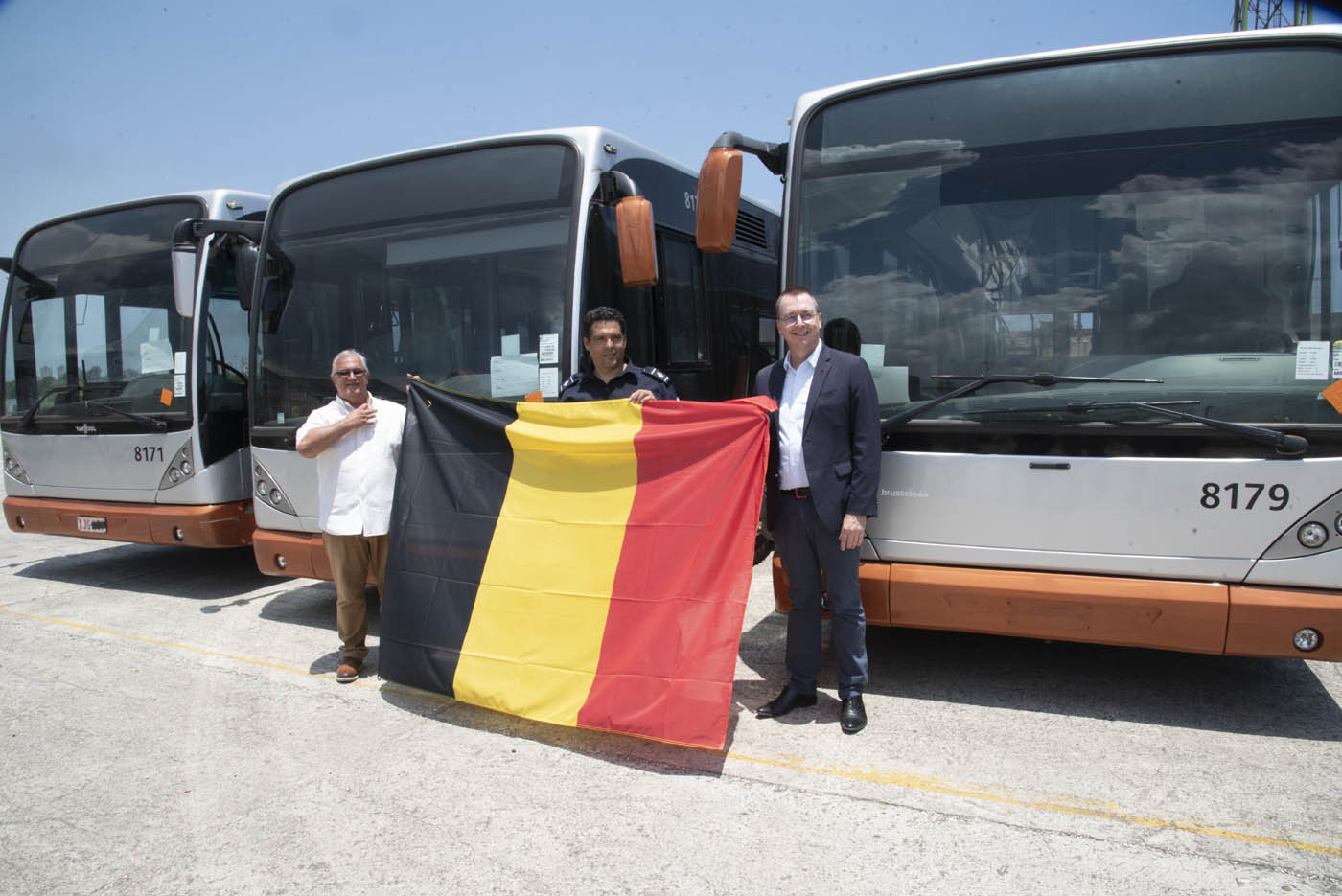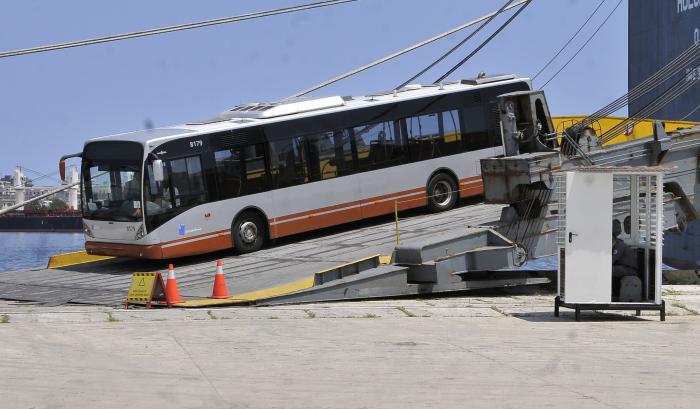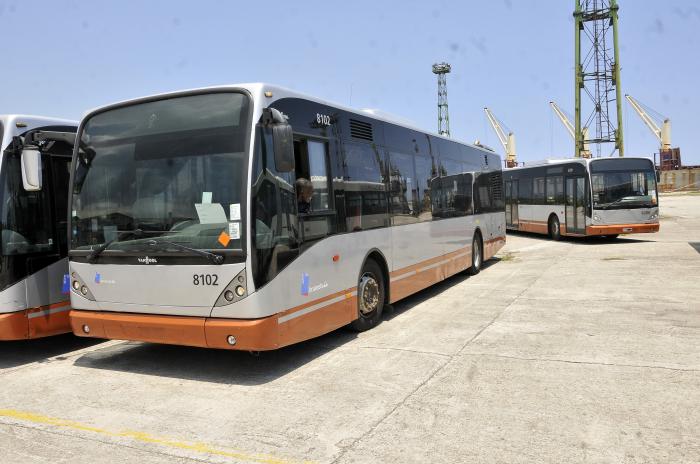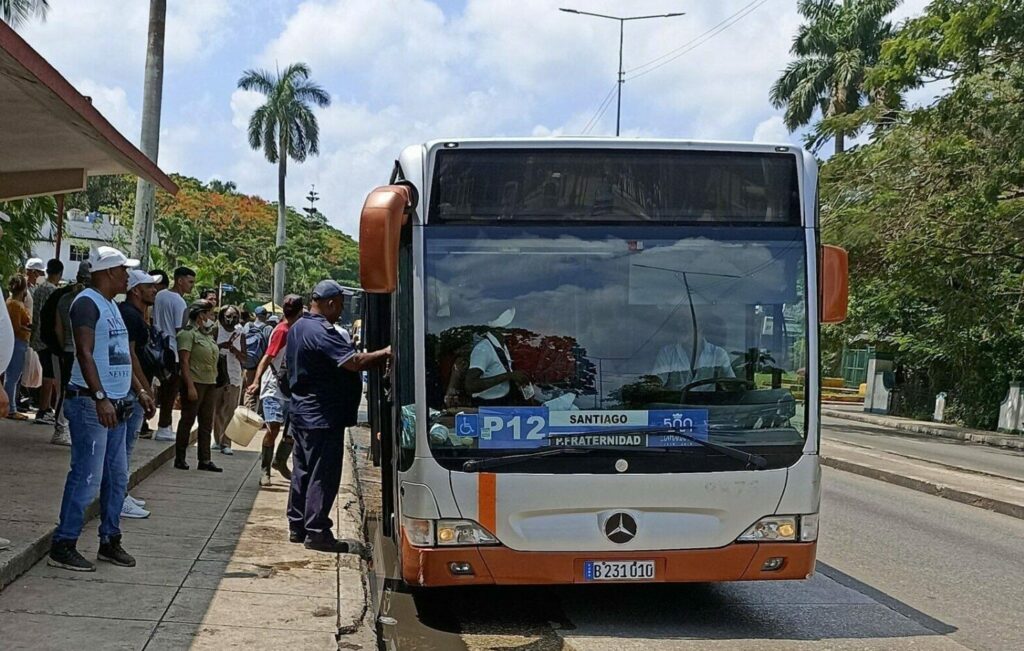30 former buses belonging to Brussels public transport company STIB have had a second life on the streets of the Cuban capital of Havana. As previously reported, 20 Van Hool A330 D1 buses and 10 Mercedes Citaro buses were donated by the City of Brussels to Havana under a framework of socialist cooperation signed in 1999.
Photos published on social media now show the buses in service in Havana and surrounding areas. Some of the vehicles still bear the same advertising as they once showed in Brussels.
Stib buses in the streets of Havana. Who would have believed it? And yet, since this summer, about thirty buses from the Brussels network have been circulating in the streets of Havana. pic.twitter.com/1iWJQeIwWA
— Fat Cat 🌐 (@FATCAed) January 26, 2023
Cuban authorities received the 30 buses on 24 June 2022 after they were shipped from Antwerp. They were officially presented to Cuban authorities at an event attended by the Belgian ambassador to Cuba, Jean Jacques Bastien, who stated that would “help the population of the (Cuban) capital, who are often limited by problems with public transport.”
Cuba possesses an ageing stock of Chinese buses, nicknamed “Guagua” by locals for their squeaking and creaking sound.

Belgian ambassador to Cuba, Jean-Jacques Bastien, poses with newly delivered used STIB buses in Havana on 24 June 2022. Credit: Ismael Batista Ramirez/Granma
Before the donation, around 50% of the city’s stock of buses were out of service, due to a lack of parts as a result of the US economic blockade of the island. The Belgian buses now serve approximately 32,000 Cuban citizens each day.
The donation has not been without issues. One month after receiving the buses, Cuban authorities became aware that the air conditioning system of the buses, designed for mild Belgian summers, was completely inappropriate for the blistering Cuban summer.

Credit: Ismael Batista Ramirez/Granma
Local transport authorities had originally planned to change the air conditioning systems but a severe lack of transport saw the STIB buses pressed into service days after their arrival. Passengers complained of poor air circulation and excessive heat within the cabin. “The air conditioning they do have does not support the high temperatures of our country,” the Provincial Transport Company of Havana reported on its Facebook page.
Translation (0:58-1:44): Cuba is subject to a North-American blockade which affects the economy. After two years of the pandemic and now the war in Ukraine, the economy has been severely impacted, affecting the price of fuel, cereals, and other goods. I hope that this small gift from Brussels can, at least in Havana, help people and reduce problems to public transport.
Cuban authorities came up with a practical, albeit low-tech, solution: On each bus, three fixed windows have been swapped for ones that can be opened. The current ventilation system was maintained. Yet some Cuban locals speculated that the transport company had merely turned off the air conditioning systems altogether in a bid to save fuel.
The transport company also complained that some of the buses had technical faults, some of which have since been fixed.
Polluting old stock
The donation of the Belgian buses to Cuba is not without controversy. The buses have been banned from Brussels since January 2022 due to their polluting Euro 4 standard diesel engines. The vehicles produce higher emissions than is now accepted and no longer comply with EU climate standards.

Credit: Ismael Batista Ramirez/Granma
Belgium has previously donated 179 Euro 3 standard buses to Morocco. In 2021, the buses were photographed on the streets of the city of Berkane. De Lijn buses have also been spotted on the streets of Kinshasa in the Democratic Republic of Congo (DRC), as well as within conflict zones in Syria.
Critics accuse Belgian authorities of dumping polluting vehicles on developing countries. “Since 1 January 2022, Euro 4 diesel buses have been banned in Brussels. As a result, the STIB offered around thirty buses in Cuba! Pollution is bad, but not for others,” one group said.
STIB commonly gets rid of its decommissioned stock, selling vehicles to upcycling companies or occasionally to end users.
Related News
- STIB to hire 600 additional employees this year
- How is STIB planning to improve Brussels transport over the next few years?
The gift to the socialist nation was made within the framework of socialist cooperation signed in 1999. The agreement was largely forgotten for 20 years until the visit of Brussels’ socialist Minister-President Rudi Vervoot to Cuba in 2021. At an event at the Belgian embassy in Havana, Cuban officials reminded Vervoort of the commitments made by Brussels over two decades ago.
Full economic relations between the European Union and Cuba were restored in Brussels in 2016 when Cuban Foreign Minister Bruno Rodríguez Parrilla met with EU officials and officially relaunched a “dialogue and cooperation” deal between the two countries.

